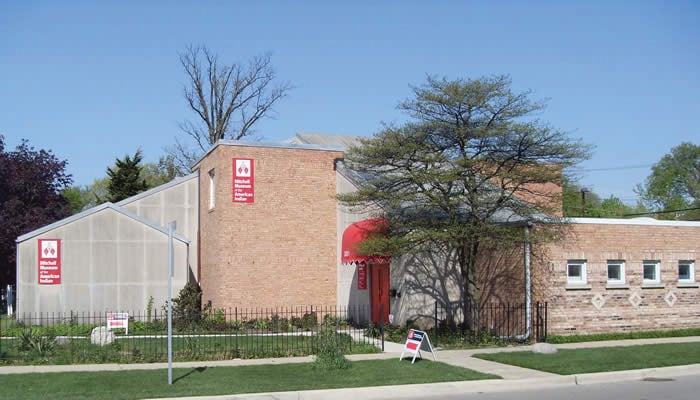Mitchell Museum honors American Indian contributions to art, culture and activism at 12th annual awards ceremony
Courtesy of the Mitchell Museum of the American Indian
The Mitchell Museum of the American Indian awarded three community members for their contributions to American Indian art, culture and activism.
November 19, 2021
The Mitchell Museum of the American Indian hosted its 12th annual awards ceremony Thursday evening. Museum staff conferred awards on three community members to honor their contributions to American Indian art, culture and social activism.
The three awards are named after Elizabeth Seabury Mitchell, one of the Mitchell Museum’s founders; Woodrow “Woody” Crumbo, a Native American artist and musician; and Native American activist Dr. Carlos Montezuma.
Delina White of the Minnesota Chippewa Tribe and Leech Lake Band of Ojibwe, who was absent from the event, received the Woodrow Crumbo Award for her work developing and preserving American Indian art. Cheryl Crazy Bull, who is Sicangu Lakota, received the Elizabeth Seabury Mitchell Award recognizing service and philanthropy toward American Indian culture.
Crazy Bull’s Lakota name is Wacinyanpi Win, meaning “They Depend on Her.” Mitchell Museum interim executive director Mary Smith said this meaning reflects the work Crazy Bull has done for her community.
“She advocates for self determination, focusing on Native voice, philosophy and traditions at the heart of the people’s work in building prosperity for current and future generations,” Smith said.
As president and CEO of the American Indian College Fund, Crazy Bull invests in Native students and their education.
Crazy Bull added it is essential to build Indigenous representation into school curricula at all levels, and that Indigenous people must receive equitable employment opportunities. Indigenous voices must also be included in decisions about issues like health care, transportation, housing and natural resource use, she said.
“Being visible also means that we have access to the resources that are needed for us to be restored to the lives of abundance that our ancestors lived,” Crazy Bull said. “I think of that as justice.”
National treasurer of the National Native American Bar Association Lawrence Baca, who is Pawnee, received the Dr. Carlos Montezuma Honorary Award for his Native advocacy work.
In 1976, Baca became the first American Indian lawyer hired at the Justice Department. Upon retirement in 2008, he was presented with the Attorney General’s Medallion, the highest award that can be presented by the attorney general to a retiring employee.
After receiving his award, Baca spoke about the difficulties he experienced as an American Indian lawyer, including facing all-white courtrooms and racist supervisors. He addressed the need for more American Indian representation in the judicial system.
At a conference in Texas about 15 years ago, Baca said an audience member approached him and said a talk he previously gave at her campus inspired her to continue studying law, despite being one of her institution’s only Native students. The week before the student met Baca at the conference, she passed the bar exam, Baca said.
Baca never forgot that conversation. The impact he had on another person’s life is something that pushed him to continue his legal studies, he said.
“You always hope, when you do a lot of speaking, that you have a true message,” Baca said. “On occasion, if you’re lucky, you find out how effective your truth indeed was.”
Email: katrinapham2024@u.northwestern.edu
Twitter: @KatrinaPham_
RELATED STORIES:
— Mitchell Museum of the American Indian recognizes three Native American activists
— Local museums increase virtual presence, connect with communities as doors reopen
— Evanston Arts Council announces 2021 Cultural Fund Grant recipients



